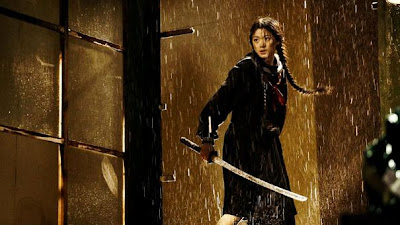I notice lately some blogs and newspapers, et cetera, have been talking about the “rise of Japanese culture” in Korea. Ampontan’s new blog had a post about it. The Korea Herald had this story about Japanese novels in Korea (via the Brunei Times because the Korea Herald thinks people will pay money for its old stories). Not a terrible story, although since the author never mentions how well titles from the US or other parts of the world are selling in Korea, it is impossible to get a proper sense of how significant the sales of Japanese books really is, or how sales have figured over the long run.
Anyhow, in a similar vein, the Japan Times had a story about the movie “Anata wo Wasurenai” (“We Will Not Forget You”), the story of Lee Soo-hyun, the South Korean guy who died while trying to save a drunk Japanese businessman on the Tokyo subway in 2001. The Japanese Emperor and Empress attended the preview screening and spoke to Lee’s parents. Truly an Oprah moment.
So, what does it all mean? Are we in a new renaissance of Korea-Japan relations? Has the media gotten it wrong all these years?
Hell if I know. I cannot speak for the 200 million people who reside in the two countries (including North Korea). But from what I have seen, I think there is far less emnity than many would like to believe. Sure there are freaks full of hatred. Both countries have their John Birchers. And Internet warriors (ugh). But from what I have seen in my time in Asia, especially in the arts (and even more so with women), I think there is a lot of affinity between the two cultures.
When I first came to Seoul, many years ago, the selection of movies on TV or at the video store was a lot more limited than today. And Japanese pop culture was totally banned. But we did use to have “video cafes,” where the proprietor would play movies on the big screen for whoever wanted to see. At first I used to go to them (especially Joy of Kino in Shinchon) to see movies like BRAZIL or FULL METAL JACKET. But I quickly realized that Western movies were in the minority at most cafes. I would say 60-70% of the films were Japanese. Mostly anime, but a lot of other good stuff, too. Similarly, any trip to the black markets in Yongsan Electronics Mart would turn up a huge amount of Japanese titles.
Because of my various jobs in Seoul, I have spent a lot of time with designers, who I have found to be perhaps the most receptive to things Japanese. But artists and musicians in general have long flown over, whether for vacations or to live for a while. One of Korea’s most interesting indie performers, Yoonki, could barely move a CD here, but in Japan he sold over 10,000 copies of his first album, toured a bunch, and did quite well for himself.
In Japan, I have met no shortage of filmmakers who enjoy Korean films, who come here as often as they can, and who have plenty of friends in Korea. Seigo Tono, of the Short Shorts Film Festival, travels here a lot (and is a hell of a good guy). The musician Sato Yukie is a one-man cultural embassy for Japan (he is back in Japan now, but should be returning to Korea before too long).
I do think there was a year (2005) when Japanese distributors were getting far too excited about Korean films and TV shows, and getting into needless and silly bidding wars for projects that were not even started yet. Business has cooled since then, but there is still a lot of dealing going on between the two countries. Not so high profile. Smarter. But still significant. Japanese TV shows, while not ratings juggernauts, are still common on Korean cable TV. In short, I think we are seeing a more mature, healthy relationship developing between the entertainment businesses between the two countries.
So when politicians and other politically minded dolts try to get people riled up about this or that alleged problem between the two countries, I would not worry about it much. But in the deeper, more important ways, the two countries are growing closer. The most popular film in Korean history, THE HOST was made with Japanese money (about 1/3 of the film’s budget). CJ Entertainment and Kadokawa have a pretty serious relationship. The Pusan Film Festival got started, in part, because of the Yamagata Documentary Film Festival. It’s not all smiles and sunshine. It’s not all nationalist anger. It’s a far more complicated and intertwined relationship.




